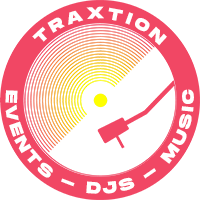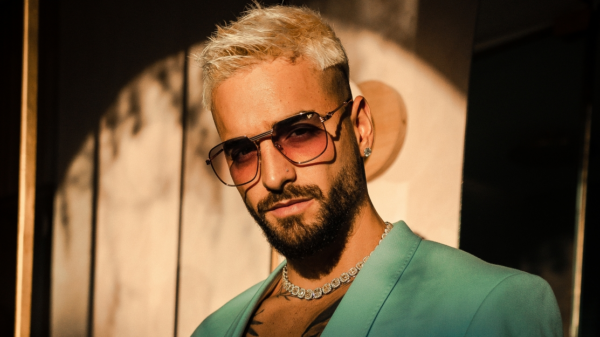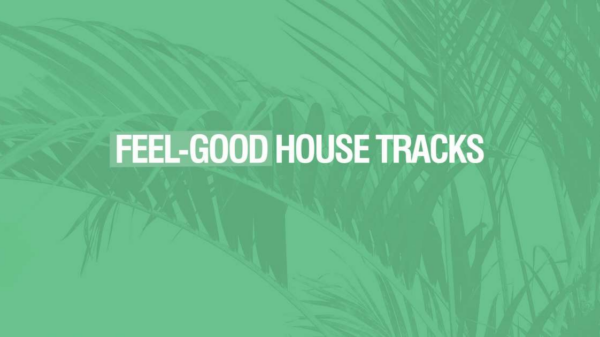Rob Burrow: Living with MND: BBC Two release date of motor neurone disease documentary – who is rugby player?
Terrifier 2: UK cinema release date, trailer – what is clown horror sequel and will it be on Netflix?
Somewhere Boy writer Pete Jackson discusses the music that inspired Somewhere Boy, the collaborative effort behind the Channel 4 drama, and more
Lewis Gribben as Danny in Somewhere Boy, standing in the middle of a country road. In a circular insert is a picture of Pete Jackson, wearing a thick winter coat (Credit: Channel 4)
Daniel F. Harris has lived inside almost his entire life. He’s always believed the world was full of monsters – the monsters that took his mum. For nearly twenty years, he and his dad Steve have stayed in, listening to old records and watching movies that always had a happy ending – and Danny was happy too. But one day that life shatters in an instant, and Danny has to take his first tentative steps into the outside world.
Somewhere Boy writer and creator Pete Jackson recently sat down with NationalWorld’s Alex Moreland to discuss the development of his new Channel 4 drama from script to screen. Jackson explained his personal connection to the series, revealed which music soundtracked his writing process on Somewhere Boy, and praised the contributions of actor Lewis Gribben and directors Alex Winckler and Alexandra Brodski.
He also went on to discuss some of the differences between writing for television and writing for radio, as well as how he approached writing drama rather than comedy. Jackson also revealed a few details about his upcoming projects Jay and The Death of Bunny Munroe.
So, just to sort of set the scene a bit: what was your starting point for Somewhere Boy? The premise, the development, where did that all begin for you?
I’ve got a young son, and – and I used to sit and listen to my dad’s records on his old record player with him, this Technics Mark 1 record player, as I was growing up, but it was such a happy, safe time – and recently, I dug that same record player out of his garage, and sat with my son, listening to the same records on the same record player, and trying to create that same sort of little safe world for him.
It made me think how fleeting those moments are, and what one might do to keep them going – to never have to send your beloved kids into the horrifying and complex real world. What happens if, actually, one guy does exactly that, and takes one act of love to the extreme?
Advertisement
When you’ve got a premise like this, where the broad idea of someone isolated, someone trapped has cropped up before – I guess Room is probably the obvious example – are you ever worried about those comparisons? Are you conscious of trying to keep it distinct in some way?
No, not at all. I mean, it’s different, I think, from those – in those other stories, it feels like the abuse is relatively front and centre. What I wanted to look at is creating a world that obviously is abusive, and obviously the dad does a terrible thing, but what he offers his son is something that perhaps a lot of sons don’t get out in the real world.
We provide a sort of counterpoint to Danny with his cousin Aaron, a guy with an absent father, who’s grown up without what Danny has had, which is the emotionally engaged, available, tactile, loving father. [We wanted] to create a world where we can blur that line between love and abuse, and create a world actually, one might sort of at points want to return to – which I don’t feel has been done before. Certainly not that I’m aware of, anyway – I think the key is just not watching those things! [Laughs]
So, your work so far has primarily been in radio – how did you find the move to television, did you find you needed to adapt your work particularly for the visual medium?
Advertisement
The intention was never to start my career in radio, really – I think what radio does is it affords newer writers opportunities, because there’s less money spent, the budget is smaller, so commissioners are more willing to take risks on new writers. Which I was, albeit, you know, coming to it at age 30. It was such an incredible experience. But, I mean, TV has always been my first love, so it was always what I wanted to move into. Obviously, there’s similarities, but also great differences, in terms of writing for TV – but you’re adapting for new opportunities, which is always great.
It feels like the show has quite a distinct visual style – how did that develop across the production?
I always knew, working with Clerkenwell Films, that Somewhere Boy would look unique: I think that they always, while none of their shows look the same, they always have a really unique visual style. Our first block director, Alex Winckler, and the Director of Photography, Ed Moore, I think just created this… I mean, the way they differentiate between the world and the house was extraordinary.
They used 1970s lenses to shoot in the house, so it looked grainer and warmer, which then provides contrast to the slightly harsher world outside. [That was] a style that continued with our second block director Alex Brodski and cinematographer Dan Atherton. Yeah, I think they did an extraordinary job.
So, you’ve previously written a lot of comedy, and this… very much isn’t a comedy. Was that an adjustment at all?
Advertisement
What interests me isn’t really genre, it’s truthful characters and real stories. I think that if you just allow your characters to be funny, without intentionally going out and writing gags and big jokes, then some will just become funnier than other others.
Now it’s a great time in TV, because that line between comedy and drama is blurring, you know, and so you can write dramas with a lot of humour without, I don’t know, feeling as though you’re neither one nor the other. Do you know what I mean? I think real life is really funny, you know, and I think that writing drama is to not forget the characters that can be fine, you know, because people are often in the midst of extraordinarily difficult circumstances [and] are funny there.
But yeah, that’s actually a really roundabout way to answer the question. It’s not really a conscious switch between comedy and drama – it’s rather, you know, telling stories, with real characters, some of whom, you know, are sometimes funnier than others.
So, picking up on what you were saying there about being truthful to characters – and what you were saying earlier about your dad and your son – do you think there’s always a personal dimension to writing, or to your writing specifically? Is that always your way in?
I think so. I never write anything autobiographical, but it all comes from experiences, fears, hopes, desires – it’s all from me. I think it’s important to draw on what you know, without having to be too literal about it. The radio show I do, Love and Recovery, is based on my own experiences of recovery from addiction – but no, none of the characters were me. It was a chance to explore all the different facets of my own recovery and my own life, through different characters and the stories I invented for them. Similarly with this. Yeah, I think it’s always shot through with my own madness and complications.
Advertisement
On a more practical note, I was wondering how you found Lewis [Gribben, who plays Danny in Somewhere Boy] – I got the sense that must’ve been quite a difficult part to cast?
Well, we thought it would be a nightmare! We thought we would spend, you know, months and months and months trying to find our Danny because it’s such a difficult part, such a complicated part. And then our casting director, Catherine Willis – who’s brilliant – sent us the first five tapes, and Lewis was on there.
We knew from day one that he was our guy. And he knew it, too! You know, he says that – I’ve heard him say in an interview – that with any other part he goes up for, he feels like he could do it, but he knows any number of other actors could. With this, he knew that he was the only person in the world that could play this in a way that he does. We got very, very lucky to find him, I think.
Yeah, I thought he was remarkable.
He’s great. And you know, obviously, that’s all down to him, but the work the directors did as well, building the performance between them was fantastic. Then the younger Dan – we found just extraordinary young actors, Samuel, who plays Danny as a seven-year-old is amazing, and then Austin Haines who plays middle Danny also was just brilliant. Rory Keenan, who plays Steve, worked with them as well as Alex the director in getting this sort of beautiful real performance out of them. It’s so, so rare to find such extraordinary young actors.
Advertisement
Obviously, the whole show is the product of a big ensemble – was there anyone who was particularly essential to it in a way an audience might not realise, someone you want to maybe draw specific attention to?
If there was ever, like, a dictionary definition of a collaborative effort, it’s this. From moment one, building the show – I’m the only writer of it, but the execs, the producer, the script editor, all of us worked in a room together, creating this story. Everyone involved, I thought was amazing.
There’s so many, so many people, and so many chances for it to go wrong, and it’s such a gift when every step is better than you expected. There’s that sort of constant kind of recalibration, you arrive with an idea in your head, and then the director comes in, and imprints their vision on it, and suddenly you’ve got to rethink it – and then the hope is that it’s actually better than what you had in your head, which it was, then the actors come in, and their performances are invariably different to what you’ve had running through your head as you’re writing it, but because they’re such great actors, it’s better too, and they often find new layers and depths that I… I take credit for but didn’t find. [Laughs]
A couple of broader questions. What would you say are your biggest creative influences?
There obviously is a million – I’ve been influenced every step along the way, you know, every film I’ve adored and every show that I’ve loved, but I’ve never sort of followed one in particular and tried to emulate anyone. I think, perhaps early in my career, I sort of wanted to write like someone else, and it never quite worked – because obviously it wasn’t really authentic – and it was only when I just decided to almost start from scratch, and just do whatever I felt was right, that things started to change.
I think music is a huge thing, you know, particularly when writing and when trying to create the tone of a show – [I] get together a playlist and allow that to, you know, build a tone.
Advertisement
Were there any songs in particular you listened to for Somewhere Boy?
[I was] listening to a lot of, like, unknown Scandinavian soundscapes? And there’s a guy I listed to a lot, Daniel Norgren, who did an album called Alabursy. That’s just fantastic. It’s like a boxer gearing up to go to the ring – I don’t listen to music while I’m writing, I listen to the playlist to sort of get in the mood [Laughs].
Is there anything you can tell us about any of your upcoming projects, like Jay or The Death of Bunny Munro?
I’m making The Death of Bunny Munro with Clarkenwell. Obviously, it’s a Nick Cave novel, and it’s an extraordinary piece of work – it’s an intimidating prospect adapting to television, but it’s going well, and it’s looking great. And Jay is in development with me and Richard Gadd, who’s currently shooting his show for Netflix Baby Reindeer. I mean, to be honest with both, there’s stuff I’m not allowed to say, but they’re very exciting projects, and I’m thoroughly enjoying it.
Just as an aside, because it’s just occurred to me – Somewhere Boy was originally going to be called The Birth of Daniel F Harris. Was there a particular reason for the name change?
Advertisement
The Birth of Daniel F Harris! The title we had from moment one. In the end, it was conversations with Channel 4 – it’s a long title, and it was a bit of a mouthful.
People tended, when we asked, to think it might be a documentary about some bloke they’ve never heard of. We realized we had to change it, and wanted to change it, and then started the process of coming up with the most unbelievably terrible names, hundreds and hundreds and hundreds of them. I think back now, there’s some I fought for, four or five, and now I think they were just dreadful. Then Somewhere Boy just seemed to make sense, you know? Because if there’s anyone that’s not really from anywhere, not even a place and barely even a time, it’s Danny.
Finally, then, just to wrap everything up – is there anything in particular you’d hope people take from the show, in terms of how they engage with it and experience it?
I think what is important is that there’s no… you know, the idea is that, for a show ostensibly about monsters, it posits the question what if there aren’t any? What if, in this world – because I think that we live in an ever more polarized world, where it’s very pleasingly simplistic and safe to think we’re right, they’re wrong, this is good, that’s bad – what if everyone is all of those things, and everyone is just complicated? Difficult, chaotic human beings, just trying their best and often failing, but at least trying? I think that’s what I wanted to get across in this, you know, that the world is just full of people getting a lot wrong – but there’s no villains, not really, as much as we’d like there to be sometimes.
Somewhere Boy begins on Channel 4 on Sunday 16 October at 10pm with a double bill of episodes. You can read more of our interviews here, sign up for our weekly TV newsletter here, and follow @NationalWorldTV on twitter here.
Did you know you can manage your profile, and explore all of the available newsletters from NationalWorld within your account.
Did you know you can manage your profile, and explore all of the available newsletters from NationalWorld within your account.







